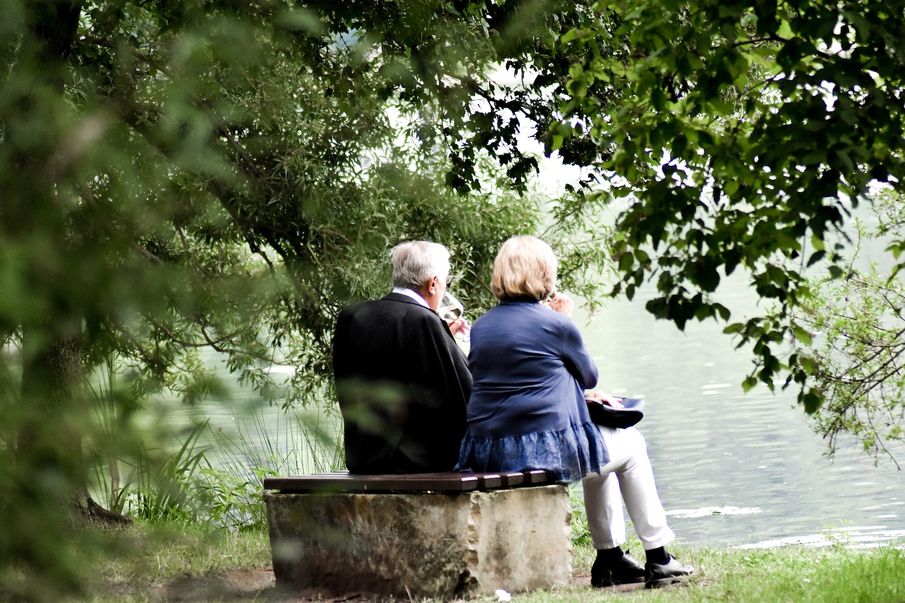A new study finds that engaging in hobbies boosts wellbeing and lowers depression in people aged 65 and over
Whether you enjoy a spot of gardening, volunteering or crafting, taking part in hobbies could be the key to boosting overall wellness in people aged 65 and above, a new study finds.
The study was published in the Nature Medicine journal and looked at the link between engaging in hobbies and mental health. The research used data from 93,263 people over 65 who were enrolled in five longitudinal studies across 16 countries.
Taking into account the variances in personal factors (such as genetics and medical history) alongside country-level factors (including life expectancy, GDP and happiness index), the researchers looked at the influence that hobbies had on the participant’s mental health. Wellbeing was measured across four areas. These were: self-reported health, life satisfaction, happiness and symptoms of depression.
The results showed that participating in hobbies was linked to lower levels of depression, higher life satisfaction, happiness and self-reported health. Whilst there were some variances – for example, countries with higher life expectancy and happiness index scores saw more adults undertaking hobbies – the results were universal.
Dr Karen Mak, lead author from the UCL Institute of Epidemiology and Health Care said, “Hobbies may contribute to life satisfaction in our later years through many mechanisms, including feeling in control of our minds and bodies, finding a purpose in life, and feeling competent in tackling daily issues.”
What is a hobby and why are they so important?
A hobby is defined as ‘an activity done regularly during leisure time for pleasure’. Examples include reading, birdwatching and gardening.
Hobbies are known to be beneficial for people of all ages, but they can be especially important for older people. The charity AgeUK notes that older people are less likely to receive mental health support, despite them being just as likely to experience anxiety and depression as younger age groups. Hobbies therefore play a crucial role in supporting the elderly.
Not only can they help older people stay more active and support their cognitive function, but hobbies can also be a great way to combat loneliness and isolation – commonly experienced by this age group.
According to Care UK, picking up old hobbies can bring back happy memories and boost self-esteem. What’s more, any hands-on hobbies, such as knitting, can maintain and even improve fine motor skills. Arguably one of the most important roles that hobbies play in the lives of older people is encouraging them to socialise and meet new people.
In her article, ‘How to use creativity as a self-care tool’, counsellor Julie Crowley notes the benefits of getting creative. “Maybe you can meet new friends, learn from like-minded people, expand your options and your mind…”
What hobbies can I try?
Whether you’re looking to pick an old hobby back up or try something new, here are just a few examples of what’s available:
- Swimming – This is a great way to keep your body moving and stay fit and healthy. What’s more, swimming is particularly great for older adults as the gentle movements and support of the water can reduce the likelihood of injury as well as soothe joint pain.
- Gardening – Not only can gardening keep you active, but it can also be incredibly mindful as well as helping to reduce stress.
- Cooking – Cooking can bring with it a great sense of achievement, as well as bringing people together. Why not try inviting some close friends around and prepare them a delicious meal?
- Puzzles – With so many different types, styles and degrees of difficulty, puzzles are a great thing to pick up now and then or do in one go. Piecing puzzles together can help support cognitive function among older people.
- Reading – Reading has a wide range of benefits, from enhancing memory to sharpening decision-making skills, improving sleep and reducing stress.
- Community groups – These groups are particularly important for supporting older people who may be living alone. There are a variety of community groups across the country, each with their own hobbies and interests. Joining these groups may encourage you to pick up a new hobby and meet new people.
- Chair yoga – Exactly how it sounds, chair yoga involves gentle movements of yoga whilst sitting. This is perfect for older people, particularly those who may struggle with their mobility. It’s great for maintaining and improving muscle strength.
- Volunteering – There are so many opportunities for older people to support their local community. Not only can it help reduce social isolation, but it can also help older people find new meaning in life. Whether it’s fostering a pet, or helping out at a local charity shop or food bank, find out more about the volunteering opportunities available for older people.
Useful resources
- AgeUK is the UK's leading charity supporting older people.
- For care and support for older people, visit Independent Age.
- If you want to talk to someone, or simply to be listened to, The Silver Line is a helpline for older people.
- Re-engage aims to bring generations together and reduce loneliness among older people.


Comments